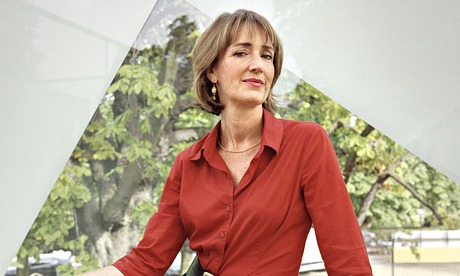
1914-18: The Cultural Front (Saturday, 10.30am, Radio 4) is the first of a three-part Francine Stock-fronted series showing how the desire to simultaneously imagine the horrors going on in France, while also escaping them, shaped contemporary arts and entertainment. For example, once the first Christmas of hostilities had been and gone, people realised that the heroic style of military art was a little inadequate, because the people doing the painting had been no nearer to the Western Front than Chelsea.
Then, after the first Zeppelins had conducted bombing raids over London, the Count who had given his name to the airships licensed the same name to a wide variety of tasty consumer products, including a sausage. Some of the humour in entertainment at the time could even have come from Blackadder. One soldier in a cartoon complains, “I really shouldn’t be here. I’ve never written any poetry.” War always benefits the entertainment industry, in this case the fledgling film business, and the demand for new Charlie Chaplin product was so great that the new films were auctioned off to the highest-bidding distributor. Radio, of course, had yet to be invented.
I recommend Bluetooth headphones, particularly if – like me – you listen to a lot of audio on a selection of different devices, less and less of which are traditional radio sets. The advantages are three-fold: you can wander around the house, into the garden and even down the road, still listening to the show on the phone in your pocket; you don’t miss the details; and thirdly and most importantly in the case of Dear Sugar Radio (wbur.org/series/dear-sugar), a new podcast gaining traction in the US, you’re listening on your own. Dear Sugar started life as an advice column on the literary website The Rumpus, offering what it called “radical empathy” in response to a wide variety of problem letters provided by correspondents. Like anything involving tone of voice, this advice works better when you can listen to the people giving it. The presenters are Steve Almond and Cheryl Strayed, whose best-selling book Wild is now a film starring Reese Witherspoon.
The problems covered may read like Niles Crane’s appointments book (“My brother is too affectionate with his boyfriend”; “Polyamory and its discontents”; “How do I survive the critics?” etc) and the tone may veer close to Parks And Recreation’s Derry Murbles – host of the fictional Thought For Your Thoughts – but what makes this work is what makes all the best podcasts work: the space to properly explore the subject. The headphones come into their own when a contributor blurts: “I think my libido is too big for our marriage and we should explore non-monogamy”.
You can’t fault The Raft Of The Medusa (Saturday, 2.30pm, Radio 4) for lack of ambition. The drama, which concerns a couple who are cut off on their farm in Kent after England’s coasts are flooded, was written by Simon Armitage and inspired by Derek Jarman. It also provides the soundtrack to a film by Jarman’s cinematographer Richard Heslop, which can be seen on the Radio 4 website.
The Reunion (Sunday, 11.15am, Radio 4) offers the delectable prospect of Sue MacGregor marshalling the survivors of the Stock Aitken & Waterman boomlet of the 90s, or at least those who don’t think they’re too big to take part in something like that. Thus we get Sinitta, Jason Donovan, engineer Phil Harding and the ever voluble Pete Waterman.







